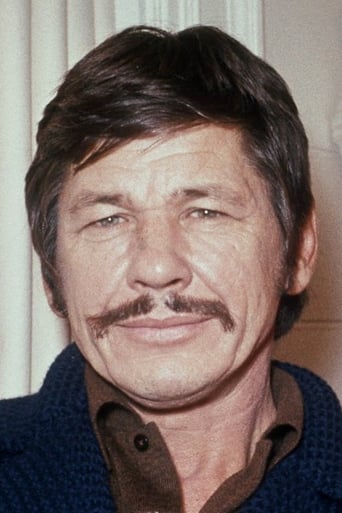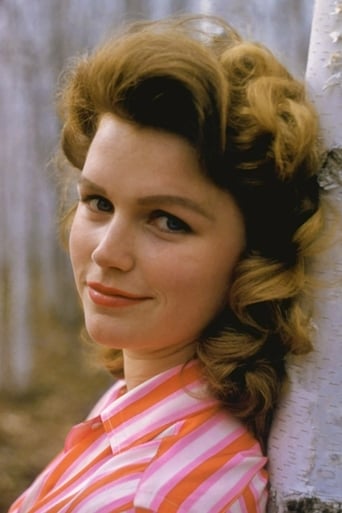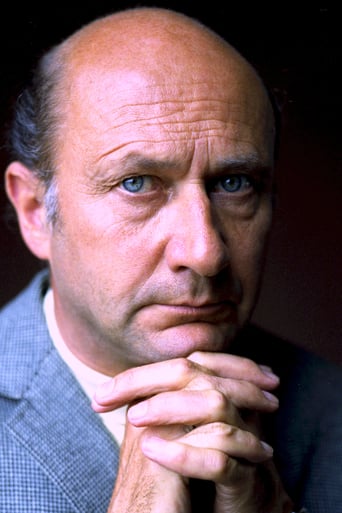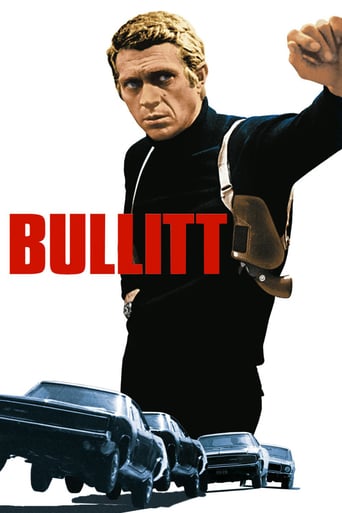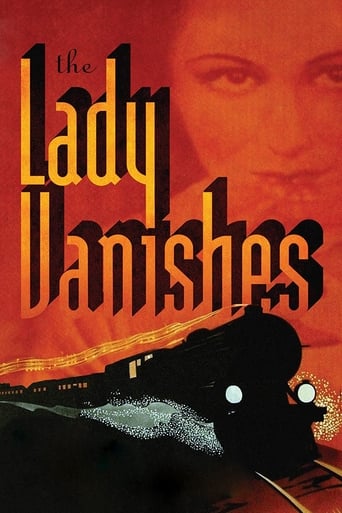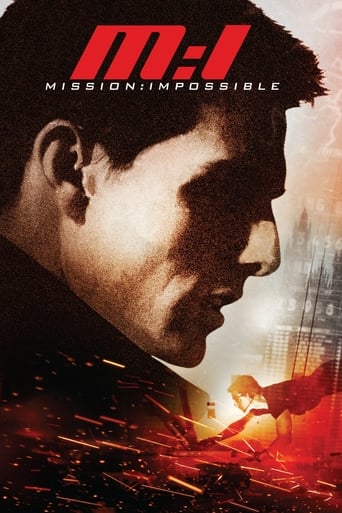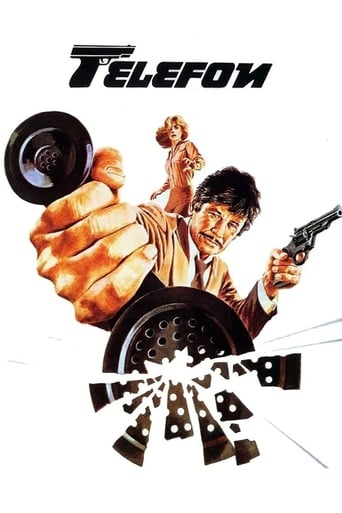
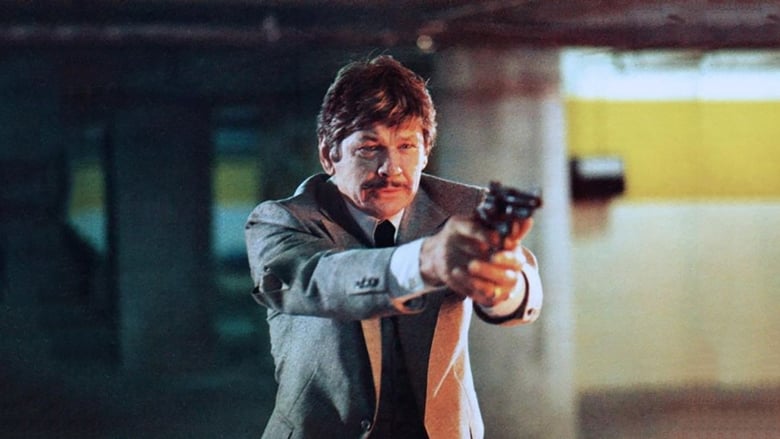
Telefon (1977)
Nicolai Dalchimski, a mad KGB agent steals a notebook full of names of "sleeping" undercover KGB agents sent to the U.S. in the 1950's. These agents got their assignments under hypnosis, so they can't remember their missions until they're told a line of a Robert Frost poem. Dalchimski flees to the U.S. and starts phoning these agents who perform sabotage acts against military targets.
Watch Trailer
Cast
Similar titles

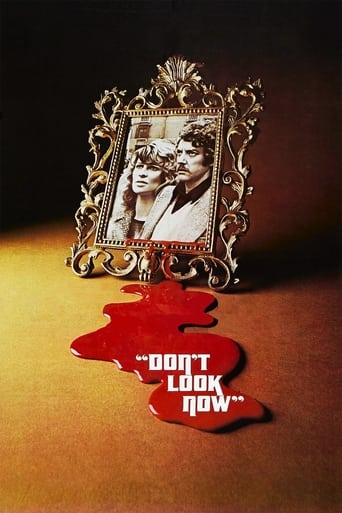
Reviews
Fresh and Exciting
best movie i've ever seen.
Absolutely Fantastic
This is a small, humorous movie in some ways, but it has a huge heart. What a nice experience.
Riveting political thriller. Bronson plays a Russian intelligence major assigned to stop programmed Stalinist agents from carrying out a possible doomsday plan. Bronson's a member of a reformist wing of the Soviet Communist Party that has replaced hardline Stalinists. However, the earlier doomsday plan remains in effect, and now it's being executed in the US by a renegade Soviet agent (Pleasance). Fortunately for Bronson, the winsome Remick is assigned by Soviets to assist him. Problem is if Pleasance is not stopped he could well set off a nuclear catastrophe.The movie has two elements from earlier Cold War films: The Manchurian Candidate (1962) and Dr. Strangelove (1964). Like Laurence Harvey in the former, agents here are programmed by trigger words to carry out their mission in robotic fashion. At the same time, there's the overhang of a possible doomsday as in Strangelove. Here those elements are skillfully blended to build suspense.What really distinguishes the film, however, is an overall absence of Cold War good guys and bad guys. There's really only one villain, the unreformed Stalinist. Unlike 50's Cold War films, this one treats operatives of both sides strictly as professionals doing their duty without noticeable favorites. One possible exception is Remick. Despite her coy girlish manner, she's also been assigned to eliminate partner Bronson once he succeeds in killing Pleasance. That way, no one will be left to spill the beans about the aborted plan and embarrass the new Soviet regime. So Bronson is to be rewarded by his superiors with death. Maybe that's a good enough reason, but not unarguably so. Meanwhile, Bronson's his usual steely self, while Remick plays up the girlish appearance, leaving us to guess how much of a façade it is. But stealing the show is Tyne Daly as the plain-looking brain behind the American side. Her superiors appear rather addled much of the time, while she deftly maneuvers clues behind her bank of computers. Good touch. Most of the action comes from explosions that blow up real good. I don't know how they did them in 1977, but they're impressive as heck.Anyway, the movie suggests a possible waning of Cold War passions on our side, perhaps because of growing recognition of what a nuclear exchange would entail. Be that as it may, the movie remains a taut and under-rated political thriller, helmed by the masterful Don Siegel.
Telefon has several good trumps, but suffers here and there in a painful way from budget restrictions. The latter becomes clear within the 5 first minutes, as we see KGB people using a Mercedes van, while a top man sits waiting in a limo from the same German car company. Not really substantial, but it nevertheless gives the movie instantly something cheap, a made for TV-only label. One could debate about whether the presence of Donald Pleasance is helping or not. His acting is always a double edge sword: on the one hand, it is funny to see him exploit at the maximum the small roles he got, by using the most futile objects like a handkerchief ("Hell is a city"). On the other hand, he often portrayed the bad guys in a somewhat too pronounced and stereotypical way, which takes away a part of the suspense. His role in Fantastic voyage is a good example, and the same happens in Telefon. His blond whig he uses in the beginning of the movie adds to the "cheapo" character of the movie. Maybe the budget was somewhat mismanaged ? The blowing up an entire valley surely was impressive, and added credibility to the real menace the USA was facing. On the other hand, a few fireballs less here and there, but eastern European looking cars in stead would have been a nice compromise. Not withstanding these small imperfections, I quite liked this decent movie. Using brainwashed people to perform dirty jobs of course wasn't a new idea. In movies such as the Manchurian Candidate and Parallax View, this road already had been explored. What gives Telefon that extra menacing touch, is the fact that the 50 people on the KGB list live ordinary lives, unaware of the looming danger. We briefly meet a mother planning to make pancakes for her kids, a priest busy decorating his church, the owner of a helicopter taxi with money and marital problems, the owner of a car repair shop etc. And then, each of them is abruptly called away from their ordinary day-to-day lives. It almost would make you look quite suspiciously at friendly neighbors, who might or might not be too on a KGB-list, waiting to be activated and perform one specific task of death and destruction. The fact that one of the victims is used to destroy a disaffected military installation even adds an extra dimension to that lurking menace. This juxta-position of potentially dangerous people amids an innocent surrounding is of course no new formula. Still, it is used with cleverness here in Telefon. Still, maybe the generally somewhat too mild tension needed some extra punch here and there to make this a classic spy movie. (By the way, was it the CIA who was taking pictures from Borshov and Barbara, when they met at the airport ? It's not really followed up) Bronson was strictly "mission first" during 90 % of the movie, and immediately set the tone by asking Barbara not to be "so damned cheerful." But the American sun and beautiful all American girl Lee Remick had no trouble at all to melt the Soviet ice, and working at a détente at personal level. They look a bit like an unlikely silly pair, with no sparks flying around, just some decent double entendre (miles and miles to go...) Still, I always liked silly pairs ! Certainly much more than the all too obvious and slick matches such as in Hitchcock movies à la North by Northwest. Urk !Anyway, don't let such details spoil the fun. Nor should you be distracted by the very 1970's cheap looks of the motel rooms etc. "Domino principle" too had similar shortcomings, still it is fun to see that movie again every now and then for its own merits. Telefon is indeed –as another reviewer pointed out- "the ultimate détente movie", made in an era in which strategic arms limitations were agreed upon, and the Helsinki agreements were signed by 35 countries. Before that, in the post-Watergate period, we already got some movies, critical of the CIA or more shadowy agencies and security companies, such as "The Conversation", "Three days of the Condor" and "The Domino Principle". Here, things are even taken a step further: Russian agents are on high alert, because one of their own renegades is trying to trigger off a Third World War. So they send their top agent to the USA to clean up the mess... If a new McCarthy would have emerged under Reagan,Bronson and Remick would have been blacklisted because of what would have been labeled this "pinko" movie. In a way, the international diplomatic situation got once more reflected in the history of movie making. In 1943-45, there were some very pro Russian movies made by Hollywood,such as The North Star (1943) or Mission to Moscow (1943). After that came red scare movies such as the Red Menace or I married a Comminist. Things chanced again after the death of Stalin and the disgrace of Sen. Mc Carthy. The Bette Davis movie "Storm Center" (1956) for ex. is one of those movies that takes a more balanced approach to communism. Sputnik and Cuba once again made the pendulum move to the other side, while it swung back to the center left with efforts like Telefon. As such, this movie is an interesting witness of its time.
Nicolai Dalchimski, a now rogue secret agent for KGB has stolen an important notebook which has the names and phone numbers of sleeping undercover KGB agents living in America. Under hypnosis they were given instructions, that when they hear a certain poem resided it triggers them to unknowingly act upon their mission which is a suicidal act on mainly military targets. Dalchimski heads to America to begin the process, so the Soviets send Colonel Borzov over there to put a stop to it before it causes a world war three.A curiously low-key, but plodding espionage cold war thriller (taken off Walter Wager's novel) by stalwart director Don Siegel. I'm really caught here, as the plot remains stimulating due to the novelty of its new slant (involving a KGB assignment of brainwashed sleepers living in the USA, who could be used to destroy an important target when a certain quote is mentioned to them), but I found it durably grinding than excitingly gripping. There was so much opportunity arising from the situations to the let the tension gradually build-up (as the concept is an alarming one), but despite some tight drilling set-pieces it never manages to tie them together to create a rampant urgency throughout. It's quite a spotty cross-country trip (spending a lot of time with Charles Bronson and Lee Remick), which gathers a head of steam before letting go the in the final third when the two parties finally come to blows (some underground car parking) and then delivering a well-staged, but underwhelming climax.The plot-work (by Peter Hyams and Stirling Silliphant) is quite constructive (if outrageous) with its sober script consisting of humorous quirks, but Siegel's efficiently grounded direction tries to cleverly milk out the dramatic suspense, but is forced to sourcing the material in an mechanical fashion. Although Pleasance's phone calls of stating Robert Frost's "Stopping by Woods" to trigger of the sleepers are eerily achieved. Those familiar with his work though would come to appreciate the use of the well positioned camera (photographed by Michael Butler), from the leering frames to the long, expansive shots of the surrounding backdrops. Siegel truly had an eye for those details. The music was composed by no other Lalo Schifrin (who's done quite a few scores for Siegel --- "Dirty Harry" (1971) comes to mind), as he chips in with an engrossingly simmering and characteristic score that works with its dangerous tone.The performances are acceptably spot-on with a sturdy as ever Charles Bronson and Lee Remick shines with her affable presence. The two worked together very fittingly, but sometimes their moody interludes did take away from the bigger picture. Donald Pleasance gleefully turns it up as the rogue Russian agent, but in the end I wished there was a little more to his character. Patrick Magee, Sheree North, Jacqueline Scott also show up good support roles and Tyne Daly appears in something of a disposable character, well for laughs anyway. The way she was brought in, I thought there might have been more made of it. Also if you look at the cast there are some regulars, if only used in small parts that feature in other Bronson and Clint Eastwood films with the likes of character actors Ed Bakey, John Mitchum and Roy Jenson.Hypnotically established gear work that's leisurely paced, but bestows little to no fireworks.
This excellent spy thriller directed by action master Don Siegel unfortunately has a drab, aloof title that causes many to skip it for a more exciting-sounding tag. Even Charles Bronson fans, and they are legion, often ignore this little gem for others of the genre. Not only a dilly of a suspense story filled with some of Hollywood's best actors at the time, "Telefon" also contains humor and many tongue-in-cheek lines. The Robert Frost poem, "Stopping by Woods on a Snowy Evening," utilized to trigger the drug-induced hypnotized Soviet agents to finish their mission becomes a pun for KGB agent Maj. Grigori Borzov (Bronson)when ready to give alluring Barbara (Lee Remick) a tumble in the hay. Borzov looks KGB agent Barbara lustfully in the eyes and emphatically affirms, "Miles to go before we sleep."Though many consider the story fanciful, it is not as far fetched as some of the actual schemes concocted by overly zealous CIA and KGB officials during the Cold War, especially at the time of the eyeball to eyeball confrontation between the Soviets and the Americans during the days of U-2, the Bay of Pigs, and the Cuban Missile Crisis. The fifty KGB agents trained at the time of the U-2 Incident to replace recently deceased Americans with similar profiles, to take out key installation sites when receiving the oral code, lines from the Robert Frost poem, are put on what seems to be permanent hold until one KGB trainer goes berserk and reopens the can of worms over a decade later, when many of the installations have been closed, converted, or moved. Enter agents Borzov and his supposed helper, Barbara, to stop the madman, Nicolai Dalchimsky, played with his usual nefariousness by Donald Pleasence. Borzov uncovers a method to his madness and the fun begins. But what is to become of Borzov once Dalchimsky is removed? There's plenty of spills and thrills along the way with the seasoned actors given intelligent and often humorous lines by writer Peter Hyams whose script is based on the novel by Walter Wager.Though no one in the cast falters, even in the bit parts, Tyne Daly steals the show as Dorothy Putterman (oh, how the name fits), a computer nerd in those glorious DOS days of old before the world heard of Bill Gates. Not only does Daly get some of the best lines in the movie, she delivers them with élan. She also reminds the viewer to be careful what is said to a computer, because they are very sensitive little fellers.
